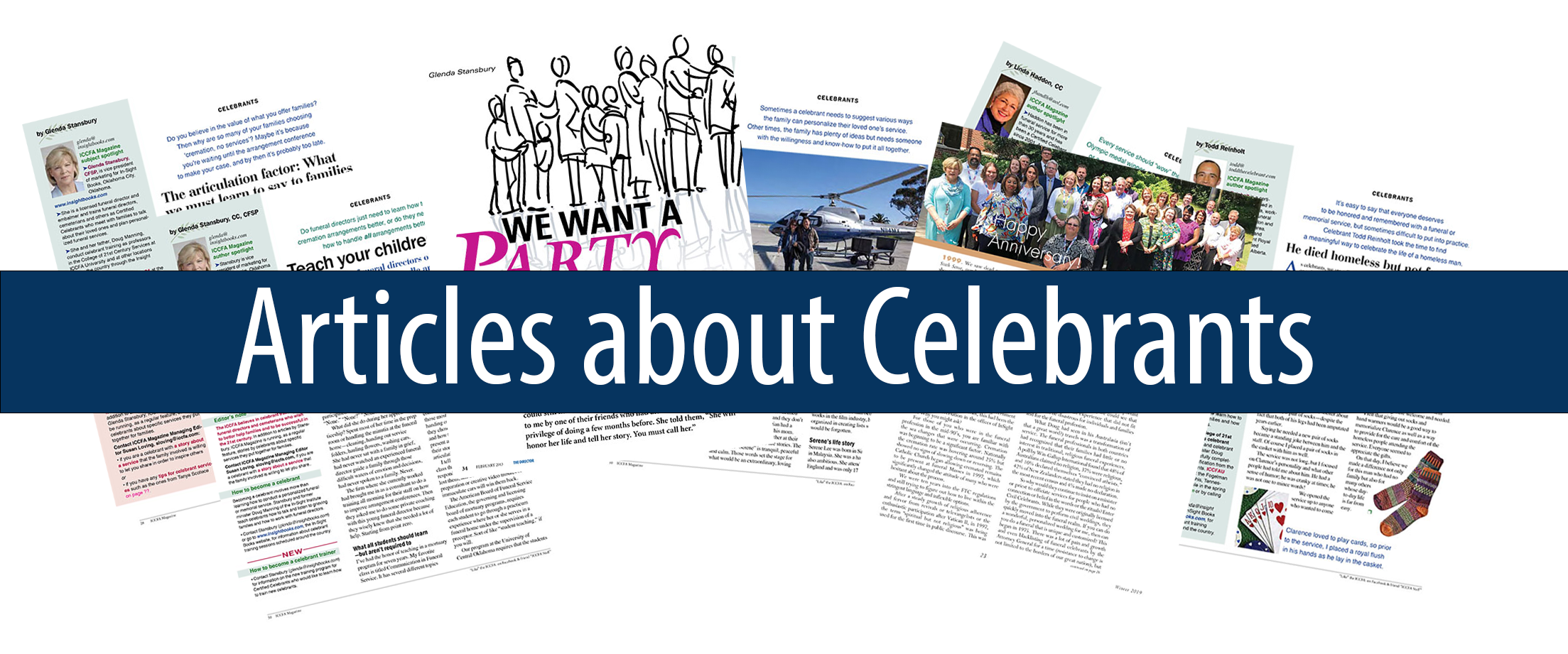- Do I need to do any reading or preparation before the training? No, you will be given your materials on the first day of training.
- Do I need to bring anything to the training? You will be given a workbook for taking notes, Doug Manning’s book, The Funeral, as well as a Celebrant flash drive with lots of resources contained on it. You will be assigned to write a eulogy for homework on the second day of training so you will need paper and pen, or your laptop if you prefer, for completing your homework.
- Is a laptop required? No, if you prefer to do your writing homework on a laptop then you may bring one. We will have a printer available at the training.
- When will the training schedule for next year be posted? We will post any trainings for next year as arrangements are made. Just keep checking our website for additional dates.
- Do I need to attend the whole training in order to be certified? Yes.
- Why are there different prices for different trainings? National and state funeral organizations or other groups sponsor the trainings and set their own price.
- How do I register? Registration information for each training is available by clicking on the date and location for each training in the blue box on our How to Become a Celebrant web page.
- Most of your trainings are 3 days but the ICCFA University training is 5 days. Is there a difference in the training? The actual Celebrant training is the same. However, in order to fit the ICCFA University schedule an additional speaker or trainer is brought in, usually a trainer that works on speaking skills.
- May I attend trainings that are sponsored by funeral associations even though I am not a funeral director? Yes

